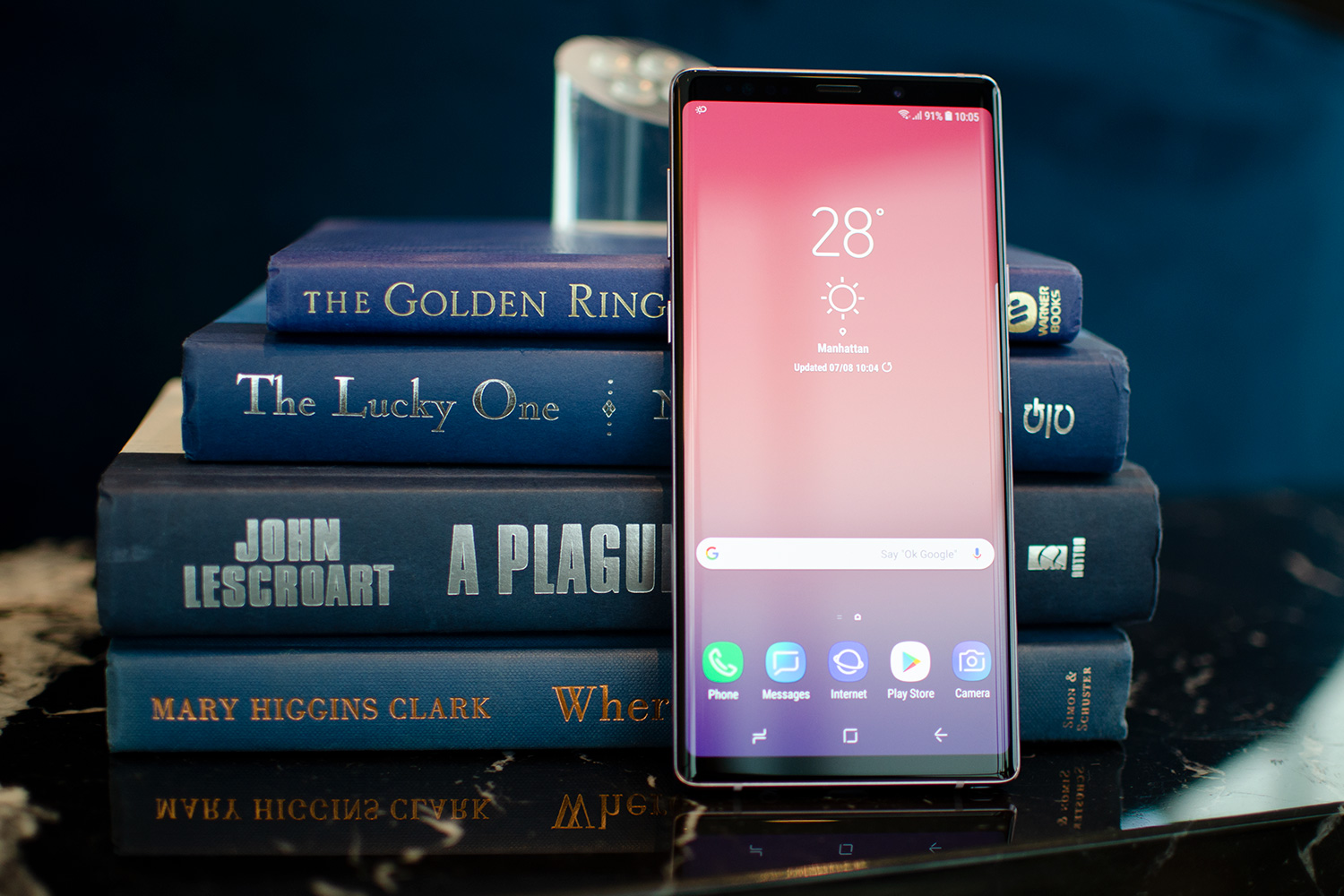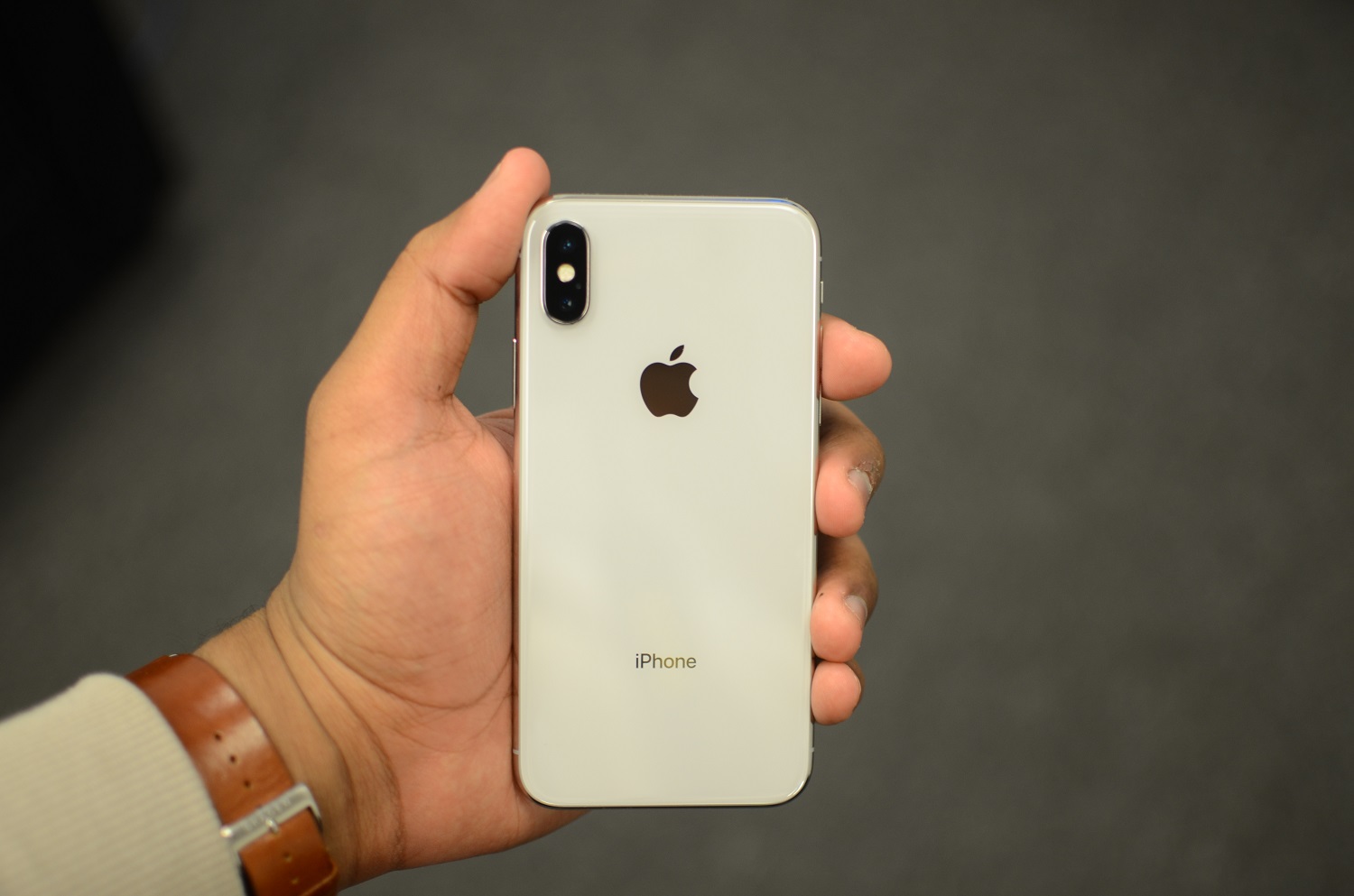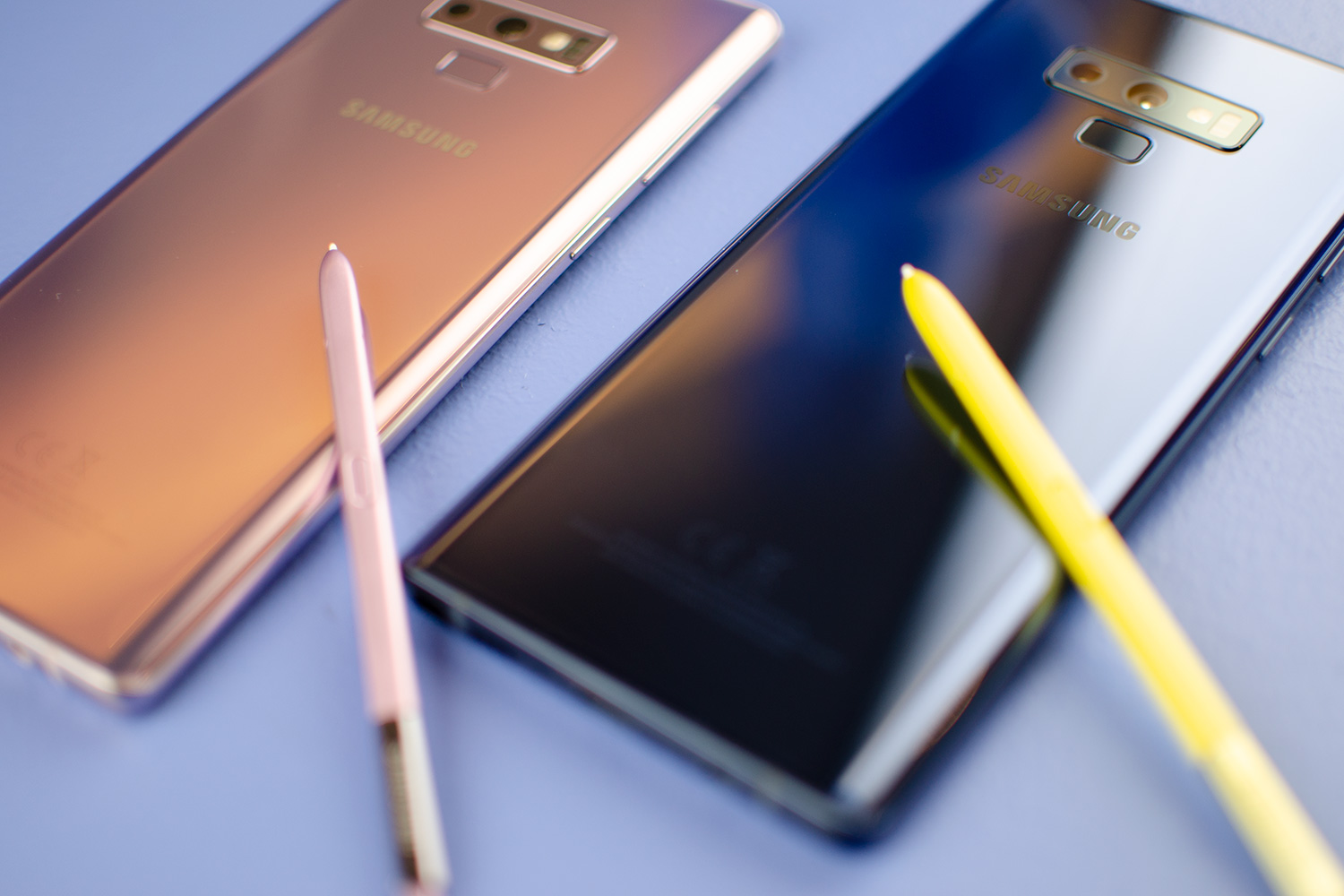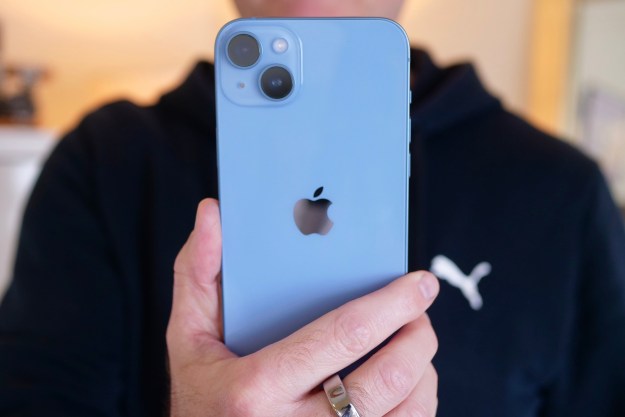Samsung has unveiled its latest and greatest flagship phone, the Samsung Galaxy Note 9. The new device features a beautifully big display, top-tier specs, and should be at least as good as any other flagship from this year, if not a whole lot better.
But there’s one flagship phone that could still beat the Galaxy Note Note 9, and it’s not even from this year. This is a classic case of Android vs iOS. Can the Samsung Galaxy Note 9 beat out the
Specs
| Samsung Galaxy Note 9 | Apple iPhone X | |
| Size | 161.9 x 76.4 x 8.8 mm (6.37 x 3.00 x 0.35 inches) | 143.6 x 70.9 x 7.7 mm (5.65 x 2.79 x 0.30 inches) |
| Weight | 201 grams (7.09 ounces) | 174 grams (6.14 ounces) |
| Screen Size | 6.4-inch Super AMOLED display | 5.8-inch Super Retina AMOLED display |
| Screen Resolution | 2,960 x 1,440 (516 pixels-per-inch) | 2,436 x 1,125 pixels (458 pixels-per-inch) |
| Operating System | Android 8.0 Oreo | iOS 11 |
| Storage Space | 128GB, 512GB | 64GB, 256GB |
| MicroSD Card Slot | Yes | No |
| Tap To Pay Services | Google Pay | Apple Pay |
| Processor | Qualcomm Snapdragon 845 | A11 Bionic |
| RAM | 6GB, 8GB | 3GB |
| Camera | Dual sensor 12MP rear, 8MP front | Dual sensor 12MP rear, 7MP front |
| Video | 2,160p at 60 frames per second, 1,080p at 240 fps, 720p at 960 fps | 2,160p at 60 frames per second, 1080p at 240 fps |
| Bluetooth Version | Bluetooth 5.0 | Bluetooth 5.0 |
| Ports | USB-C, Headphone Jack | Lightning |
| Fingerprint sensor | Yes | No |
| Water resistance | IP68 | IP67 |
| Battery | 4,000mAh | 2,716mAh |
| App Marketplace | Google Play Store | Apple App Store |
| Network support | T-Mobile, AT&T, Verizon, Sprint | T-Mobile, AT&T, Verizon, Sprint |
| Colors | Ocean Blue, Lavender Purple | Space Gray, Silver |
| Price | $1,000 | $1,000 |
| Buy From | AT&T, Verizon, T-Mobile, Sprint, Amazon, Samsung | AT&T, Verizon, T-Mobile, Apple |
| Review Score | 4 out of 5 stars | 4.5 out of 5 stars |
Performance, battery life, and charging

It’s always difficult to compare the performance of an Android phone with an iPhone, and that holds true here. The
In terms of battery life, the Samsung Galaxy Note 9 comes in with a 4,000mAh battery, which is far more than the
Both devices can be charged through the charging port, whether it be the Lightning or USB-C, and both also support wireless charging.
Winner: Tie
Design and durability

Apple has always been at the forefront of great design in the tech industry, and the
The Galaxy Note 9 is a stylish device too, but it’s a very different-looking phone. It features a big display with curved edges on each side, and a glass back. Also on the back is a dual-sensor camera, and a fingerprint sensor — which is one thing that the
When it comes to durability, neither of the phones is particularly drop-proof considering the abundance of glass used in their construction. They do both feature water resistance, however, with the
It’s hard to move past the beautiful design and edge-to-edge display of the
Winner:
Display

Apple has stepped things up with the display in the
No matter how you look at it, the Samsung Galaxy Note 9 display is better in every way.
Winner: Samsung Galaxy Note 9
Camera

The camera is becoming increasingly important for smartphones, and both of these devices offer top-tier cameras. The iPhone is known for having a great camera, and while there has been increased competition in the past few years, the
The camera in the Samsung Galaxy Note 9 is also set to be pretty spectacular, though we’ll have to wait and see just how well it performs. The camera is a dual 12-megapixel camera, and both sensors offer optical image stabilization. One of the sensors has an adjustable aperture of f/1.5 to f/2.4, while the second sensor has an aperture of f/2.4. The front-facing camera on the device comes in at 8 megapixels. The hardware looks very similar to the S9 Plus camera, which is particularly good in low light, but Samsung has added some A.I. smarts that could elevate it even further. However, it has very tough competition in the
Both devices clearly have nice cameras, but we’re going to have to wait and see how well the Galaxy Note 9 performs. Until then, this one’s a tie.
Winner: Tie
Software and updates

When comparing an iPhone with an
The iPhone’s iOS is known for being stylish and easy to use. Everything is pretty much where you expect it to be, and once you get used to how iOS works, you’ll be able to get around it very easily. There’s another big advantage to iOS: Apple controls both the software and the hardware of the iPhone, so that means that you’ll get updates as soon as they’re available, assuming your phone supports the update. That’s not true of
Still, there are some big advantages to
We’re not going to award a winner based on whether
Winner:
Special features

Both the Samsung Galaxy Note 9 and the
Let’s start with the
Of course, the Samsung Galaxy Note 9 has its own fair share of special features. For starters, it supports Samsung’s DeX, which allows you to plug into a monitor and use the phone as a desktop computer replacement. The Note 9 also comes with Samsung’s S Pen, freshly equipped with Bluetooth, which can act as a remote control for the phone’s camera. We think the phone has a few more helpful special features than the
Winner: Samsung Galaxy Note 9
Price
Phones are getting increasingly more expensive, and these two devices represent some of the most expensive phones on the market. Both the
Overall winner: Apple iPhone X
Both the Samsung Galaxy Note 9 and the
Editors' Recommendations
- Best iPhone deals: Save on iPhone 15, iPhone 15 Pro Max and more
- iPhone SE 4: news, rumored price, release date, and more
- Best iPhone 15 deals: How to get Apple’s latest iPhone for free
- A surprise phone just beat the Galaxy S24 Ultra in a big way
- The best iPhone 15 Pro Max cases in 2024: the 20 best ones


